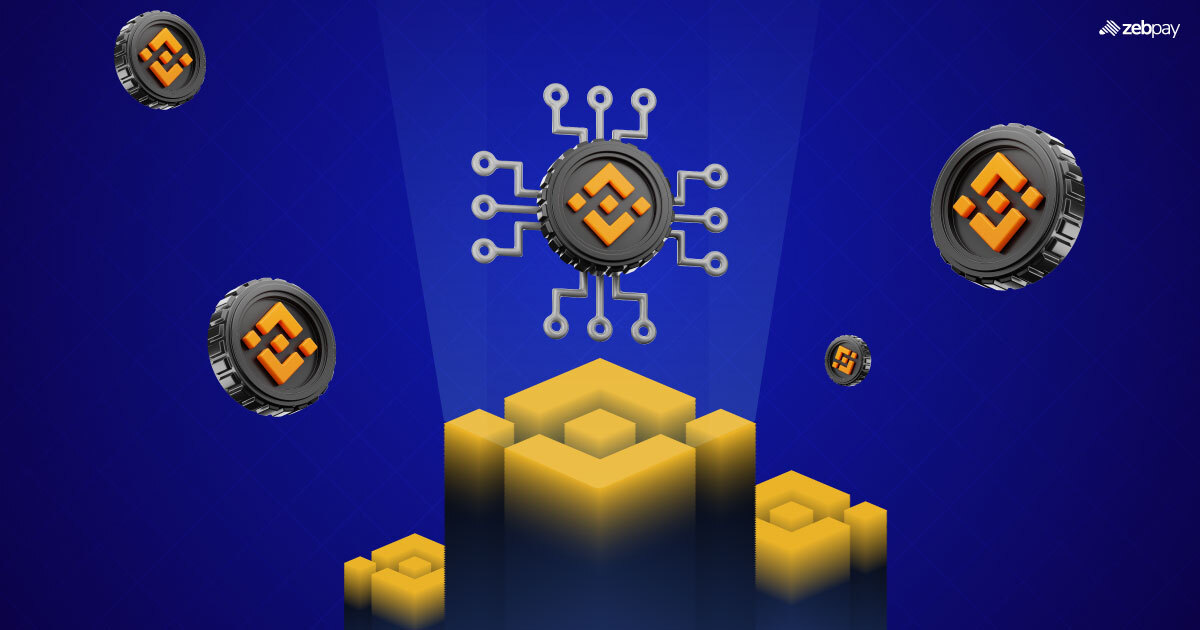Many crypto enthusiasts are familiar with Binance, the world’s largest cryptocurrency exchange. But did you know that Binance has two different blockchains? In this blog post, we’ll explore the differences between Binance Chain and Binance Smart Chain, and understand their unique features and use cases.
Introduction to Binance Chain
Binance Chain, the original blockchain of Binance, was launched in 2017. It provided a marketplace for exchanging crypto assets and introduced Binance Coin (BNB) as its native token. BNB was used for trading fees, and a percentage of it was burnt every quarter, reducing its total supply. Binance Chain also facilitated the development of decentralized applications (DApps) and boasted low trading fees.
Introduction to Binance Smart Chain
To overcome the limitations of the Binance Chain, Binance introduced Binance Smart Chain in September 2020. The BSC was not intended as a replacement for Binance Chain. Instead, it is a parallel blockchain that addressed specific needs. One of the significant improvements was its compatibility with Ethereum, allowing Ethereum-based applications and smart contracts to be executed on Binance Smart Chain.
Binance Chain vs Binance Smart Chain: Key Differences
Let’s dive into the key differences between Binance Chain and Binance Smart Chain.
Consensus Mechanism
Binance Chain uses a consensus mechanism known as Delegated Proof of Stake (DPoS). In this system, any user who proposes a valid block can become a validator, ensuring the security and decentralization of the network. On the other hand, Binance Smart Chain utilizes Proof of Staked Authority (PoSA). PoSA requires users to stake their identities and reputation. These consensus mechanisms differ in their approach but maintain the integrity of their networks.
Read more: What is Proof of Stake
Cross-chain Compatibility
While Binance Chain and Binance Smart Chain are independent, they both share compatibility with each other. This cross-chain compatibility allows for the seamless transfer of assets and tokens between the two chains. Users can opt for bridges or decentralized exchanges to convert tokens from one chain to another.
Smart Contract Functionality
Binance Chain, unfortunately, lacked the ability to support smart contracts. However, Binance Smart Chain was specifically designed to address this limitation. It integrates the Ethereum Virtual Machine (EVM), making it compatible with Ethereum-based applications and enabling the use of smart contracts.
Gas Fees
Gas fees, or transaction fees, are an integral part of using blockchain networks. Binance Chain boasts low trading fees, making it an attractive option for cost-effective transactions. On the other hand, Binance Smart Chain also offers relatively low transaction fees, making it more affordable compared to other smart contract-enabled chains. This affordability makes it an appealing choice for developers and users alike.
Binance Chain vs Binance Smart Chain: Use Cases
Now that we understand the differences between Binance Chain and Binance Smart Chain, let’s explore their respective use cases.
Binance Chain Use Cases
With Binance Chain, users can send and receive BNB, issue new tokens to digitalize assets, use it as an underlying exchange network for assets, burn/mint tokens, freeze/unfreeze tokens, and create trading pairs with different tokens. These features help create a versatile platform for managing your crypto tokens.
Binance Smart Chain Use Cases
Binance Smart Chain expands on the capabilities of Binance Chain. Users can send and receive BNB and other BEP2 tokens, explore transaction history and blocks via platforms like BscScan and API, stake BNB and earn block rewards, issue new tokens, and become a validator on the Binance Smart Chain. These features allow for decentralized finance (DeFi) applications, yield farming, and building complex smart contracts.
Read more: Binance Smart Chain and Blockchain Games
Advantages and Disadvantages of Binance Chain and Binance Smart Chain
Advantages of Binance Chain
- Transparent and decentralized blockchain
- Low trading fees
- Easy token creation and management
- Reliable and established platform
Disadvantages of Binance Chain
- Lack of smart contract functionality
- Limited compatibility with Ethereum-based applications
- Relatively fewer use cases compared to Binance Smart Chain
Advantages of Binance Smart Chain
- Compatibility with Ethereum, allowing for broader use of applications and smart contracts
- Low transaction fees for executing smart contracts
- A growing ecosystem of DeFi applications
- Cross-chain compatibility with Binance Chain
Disadvantages of Binance Smart Chain
- Increased complexity due to smart contract integration
- Potential security vulnerabilities due to smart contracts
- Higher network congestion during peak usage
Conclusion
Binance Chain and Binance Smart Chain are two distinct but interconnected blockchains offered by Binance. Binance Chain provides a decentralized marketplace for exchanging crypto assets, while Binance Smart Chain enhances functionality by enabling smart contracts. Both chains have their advantages and disadvantages, catering to different user needs and preferences. Understanding these differences can help you make informed decisions when using the Binance ecosystem.
You can read more about Crypto, Blockchain and Web 3.0 on ZebPay Blogs. Click on the button below and join the millions trading on ZebPay Singapore.

